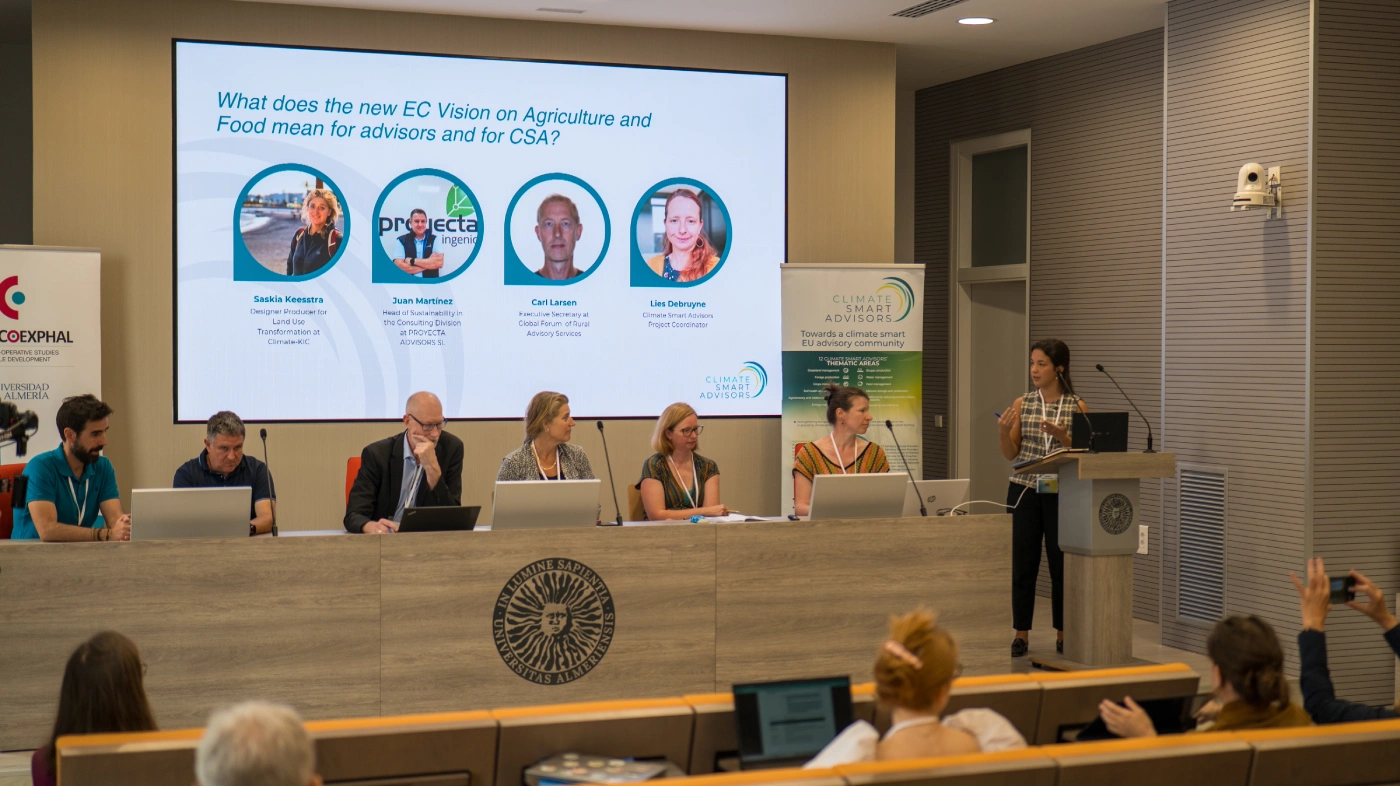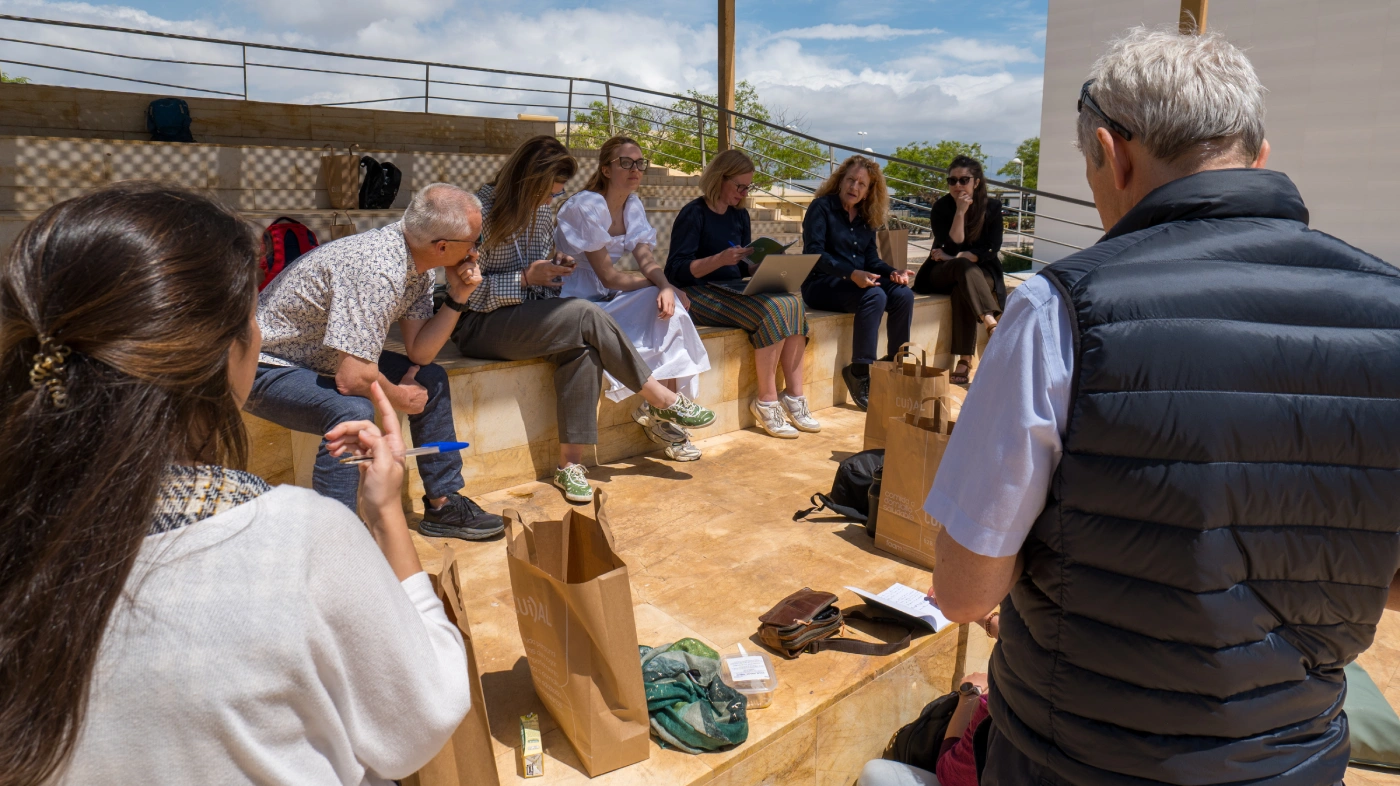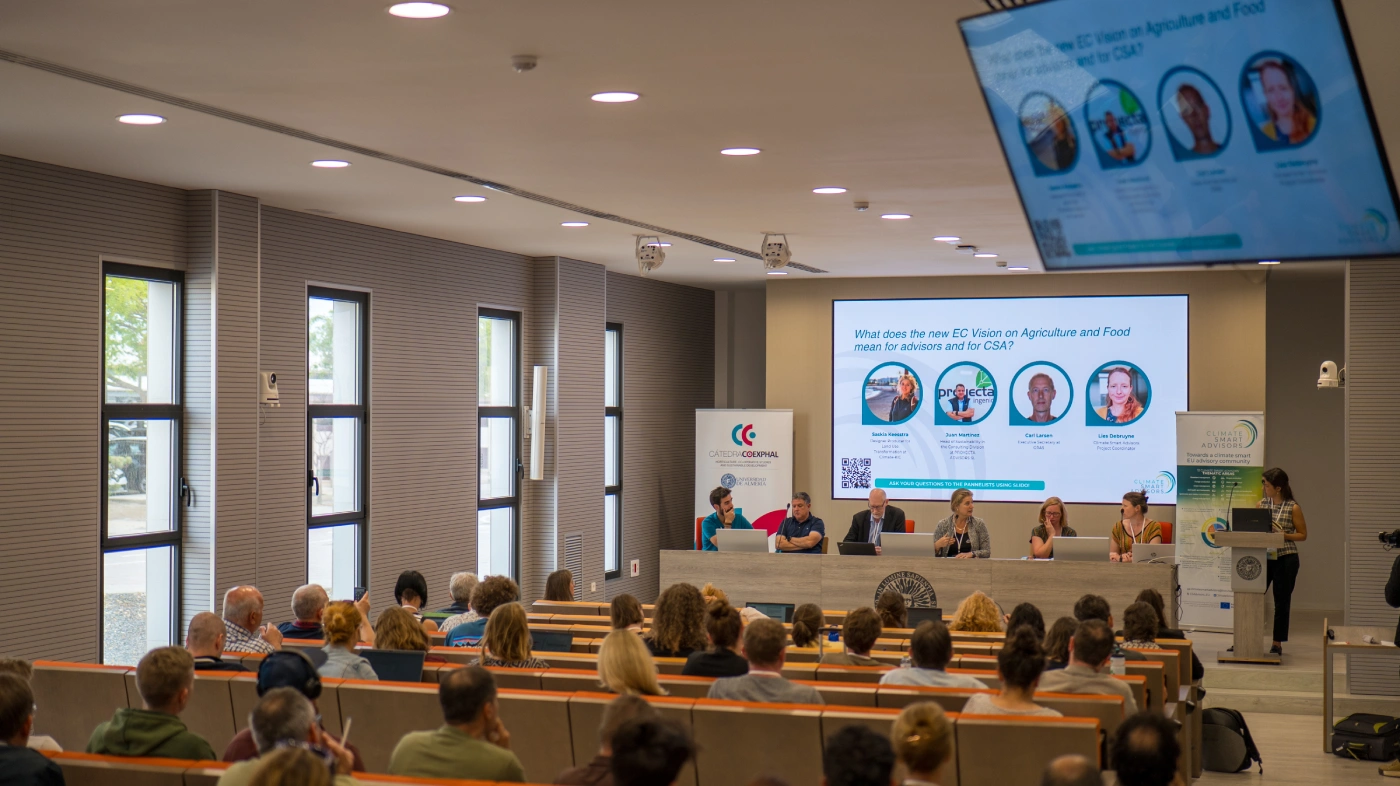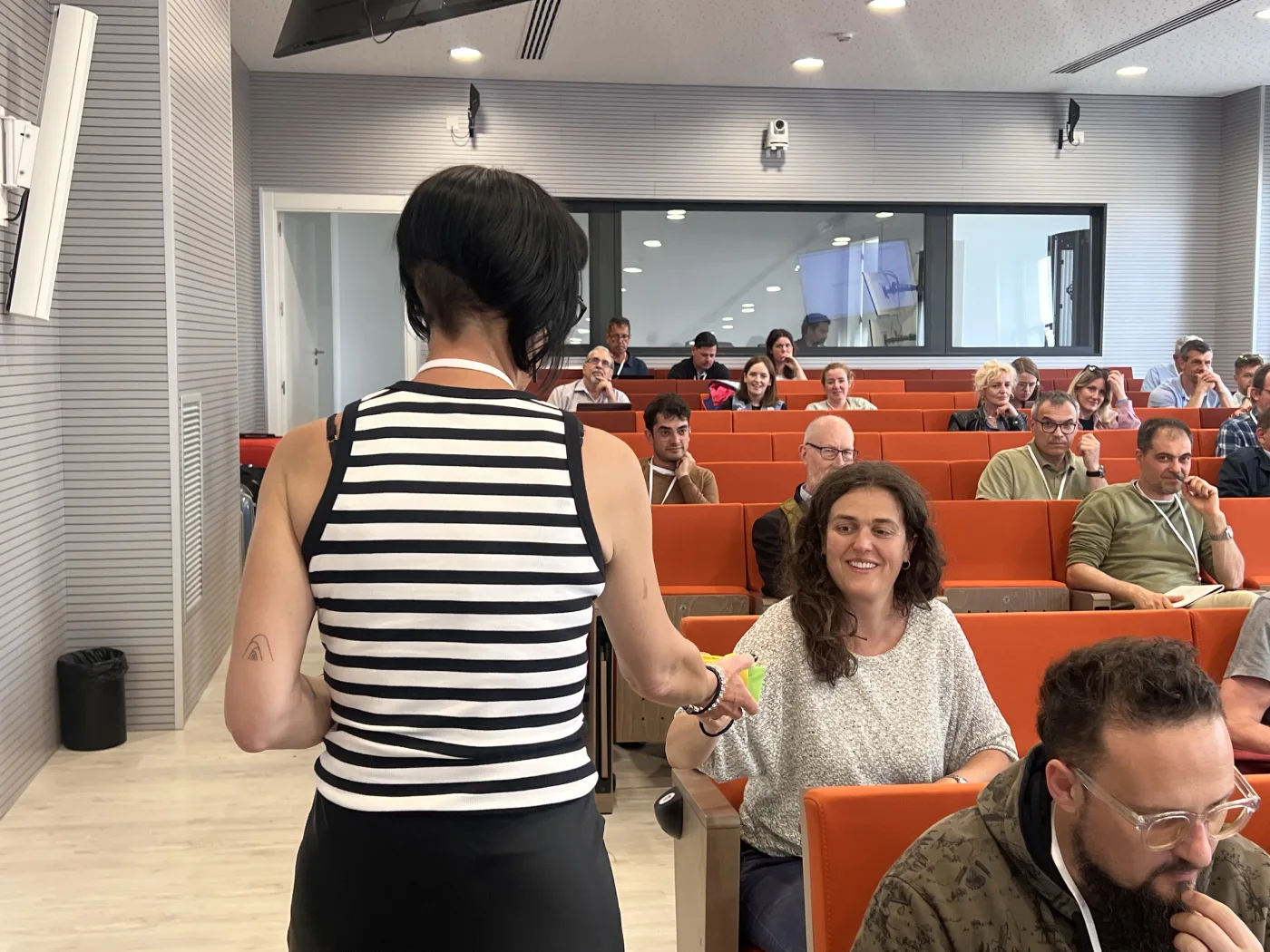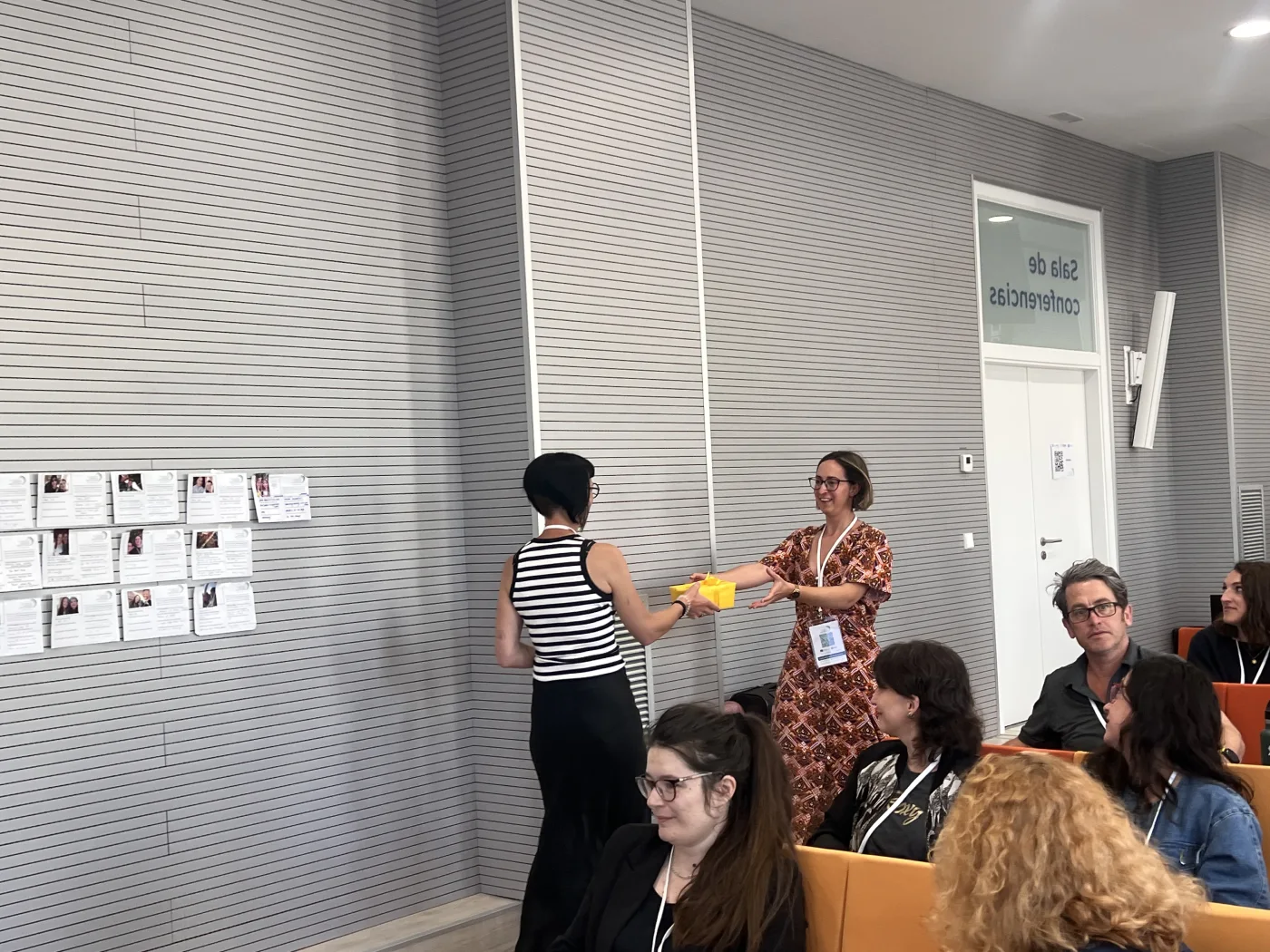Hosted by the University of Almería and COEXPHAL, the event brought together advisors, coaches, coordinators, thematic leaders, and researchers to reflect on the project’s progress, exchange insights, and collectively plan the next phase of activities.
Day One began with a welcome from Project Coordinator Lies Debruyne (ILVO), alongside Cynthia Giagnocavo from the University of Almería and Eduardo Crisol-Martínez and Laura Ruiz Jiménez from COEXPHAL. The opening remarks introduced participants to the region’s agricultural context, including its distinctive greenhouse landscape known as the “Plastic Sea,” and highlighted local climate-smart initiatives already making an impact. As Cynthia Giagnocavo explained, “Many associate Almería with the ‘sea of plastic,’ but inside these greenhouses are complex ecosystems, biodiversity, and climate-smart practices like integrated pest management and water control. Welcoming advisors, farmers, and scientists here allows us to share our work, learn from others across Europe, and build the kind of exchange this project is all about.”
The first core session focused on strengthening the operational backbone of the project through dedicated working groups facilitated by Laure Triste (ILVO), Ellen Bulten (Wageningen Research), Kevin Collins (Open University), Sarah Erbanova (SRUC), Florence Bedoin, Caroline Evrat-Georgel (IDELE), Vladislava Grbović (BioSense Institute), Alessandro Zatta (CREA), András Vér (Széchenyi István University), Martin Javornický (IAEI), Maria Suomela (ProAgria) and Isidora Čolić (BioSense Institute). Climate Smart Coaches explored ways to support their Communities of Practice (CoPs; small advisory peer learning groups), foster peer learning, and build momentum across regions. National Coordinators exchanged strategies on how to combine national partner meetings, our so-called CS-AKIS workshops (multi-actor workshops on the topic of climate smart farming and advice), and CoP events into streamlined formats that avoid duplication while maintaining local relevance. Thematic Leaders, meanwhile, looked at how to improve the format and reach of Knowledge Exchange activities, calling for simpler processes, more international input, and earlier engagement of CoPs. To creatively close the session, participants imagined media headlines they would like to see one year from now—such as “Project Spreads Climate-Smart Farming Across Europe.”
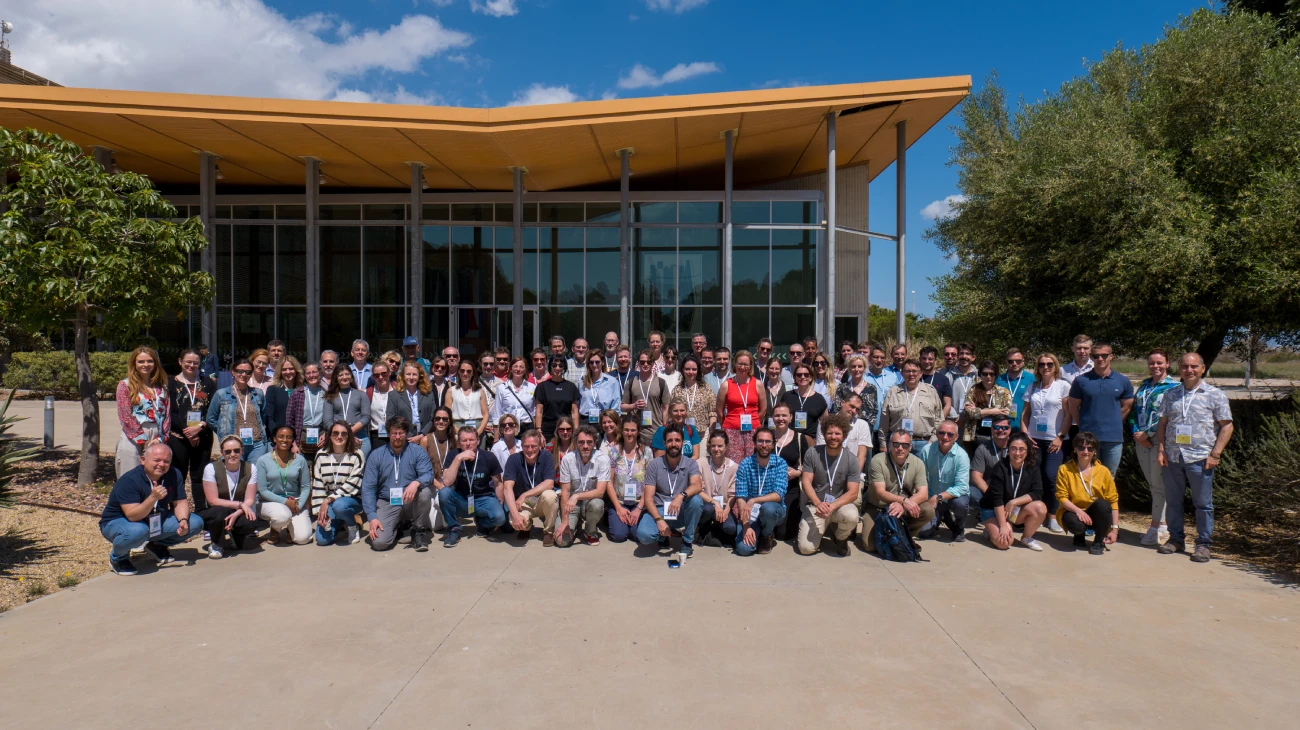
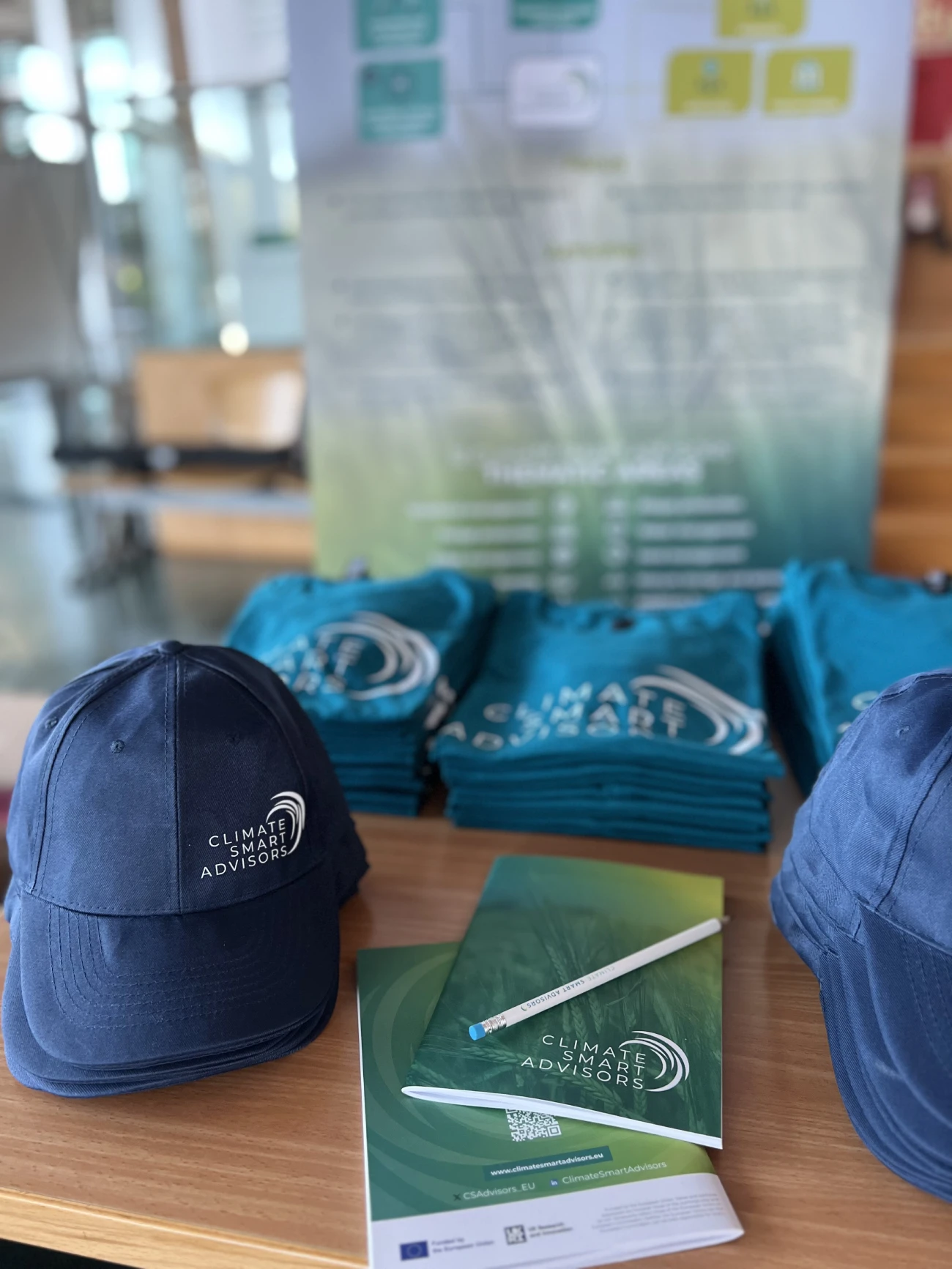
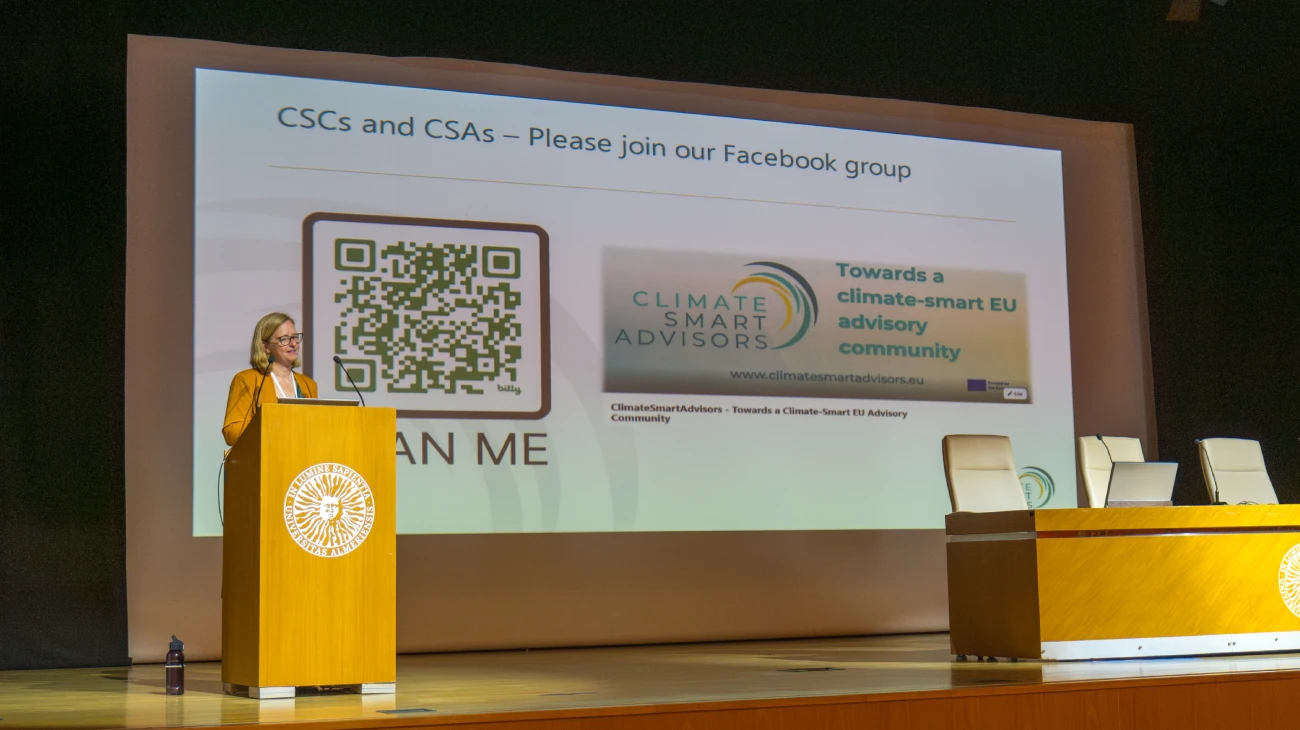
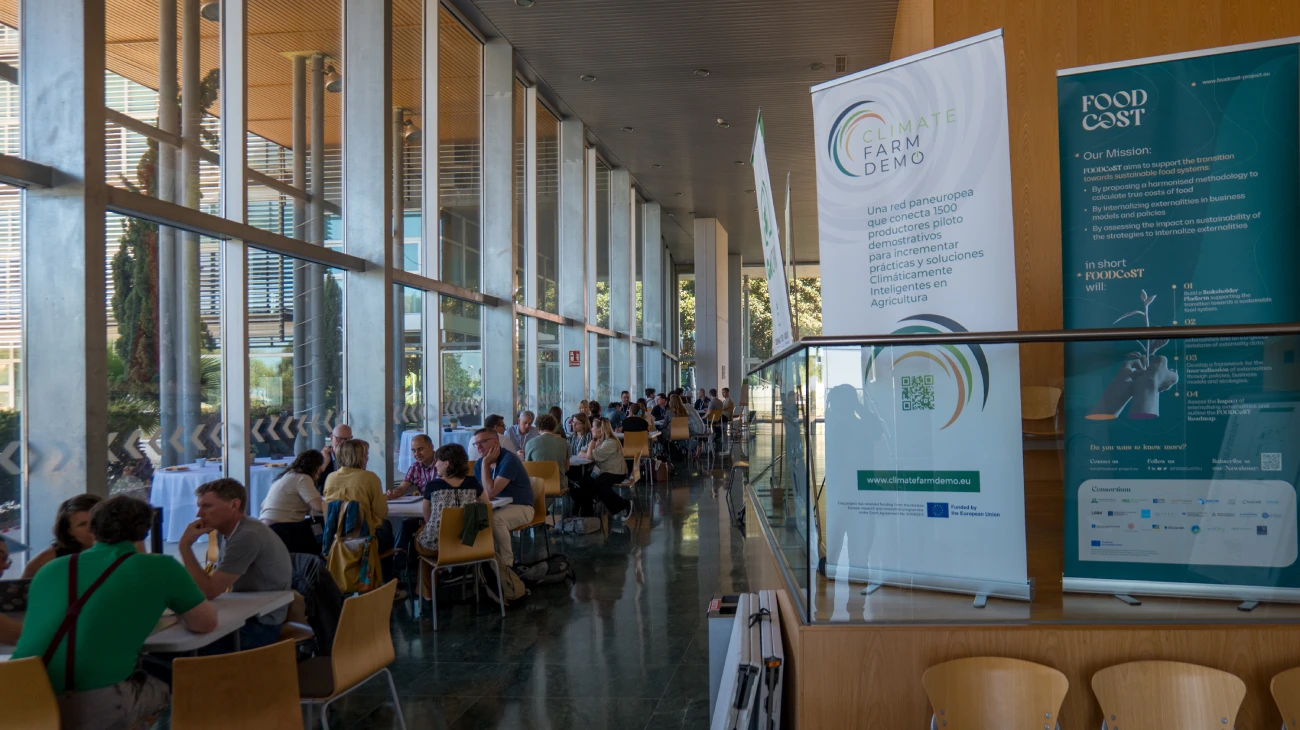
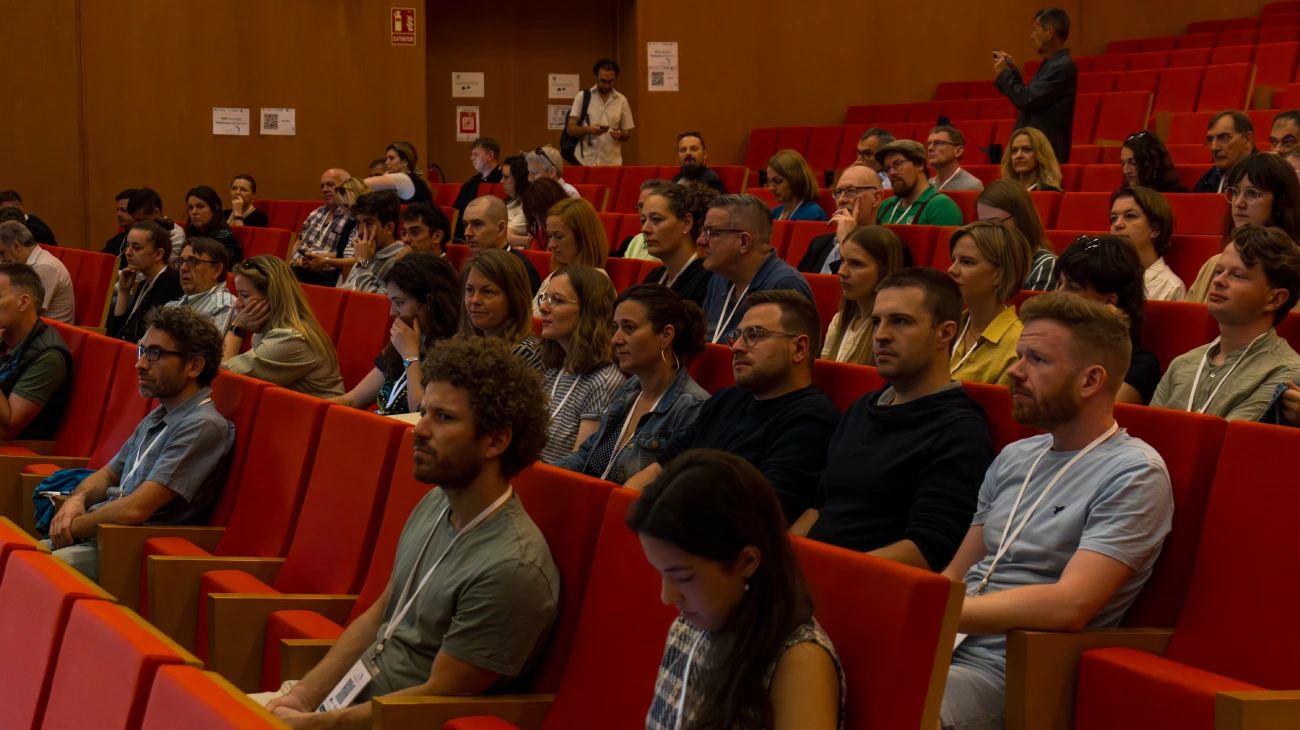
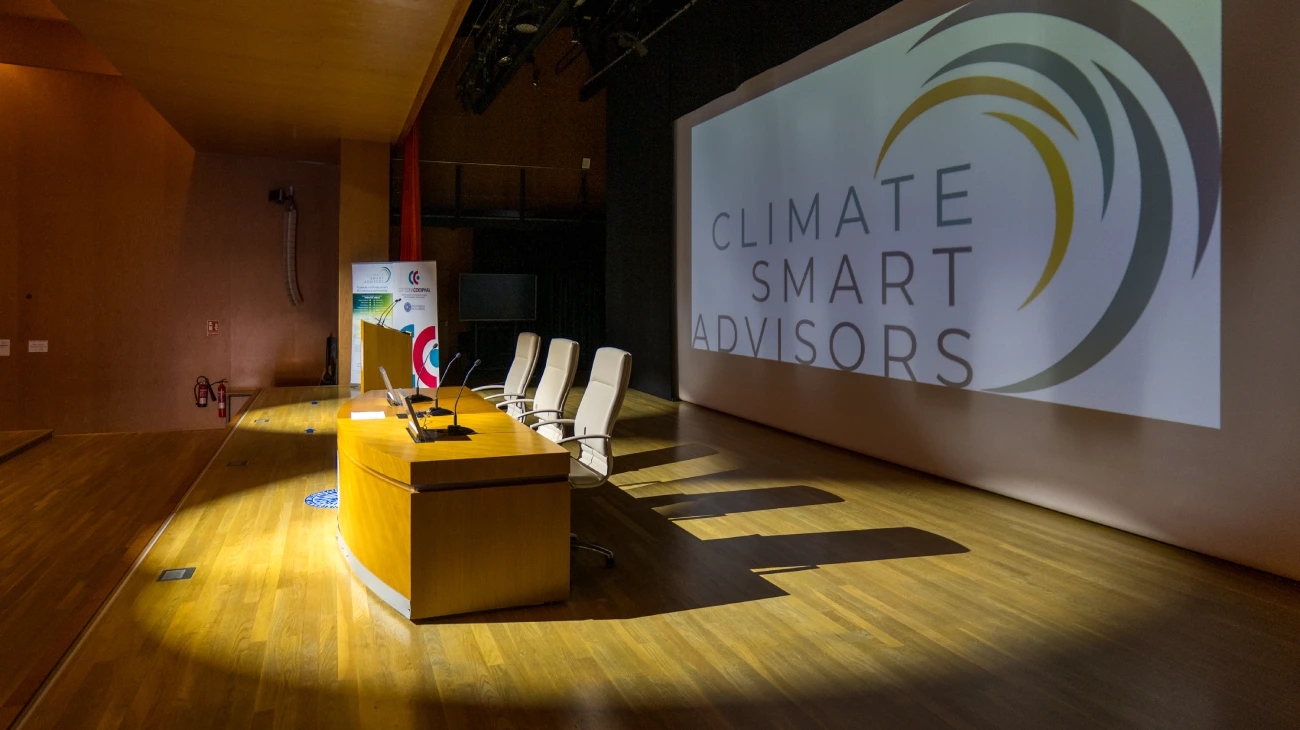
In the afternoon, the focus shifted to training and learning strategies within the project. Building on lessons from previous interventions, the group discussed the development of a new ClimateSmartAdvisors e-learning module, facilitated by Annelie Bernhart (FüAK), Kevin Collins (Open University), Sarah Erbanova (SRUC), Gergely Csima (Széchenyi István University), and Bányai Tibor. Discussions emphasized the importance of clarifying the difference between formal training and informal peer learning and called for improved coordination with national institutions, particularly in countries where training infrastructures are still emerging.
This was followed by an engaging session on delivering climate-smart advice. Tom O’Dwyer from Teagasc outlined the distinction between mitigation and adaptation strategies, setting the stage for an interactive segment led by Carolanne O’Brien. Using a “campus walk” and quiz format, participants reflected on their own advisory approaches and how best to support farmers through behavioral change.
The day continued with eight parallel interactive learning sessions led by consortium experts. Marco Tonni (CREA) discussed copper use and organic matter in resilient systems; László Gábor Papocszi (ÖMKI) presented the EcoFarm tool; Romain Reding (CONVIS) explored national water protection strategies; Aoife Smith (Philip Farrelly & Co.) addressed methane mitigation and advisor roles; Leonie de Jongh (DLV Advies) focused on herd management knowledge exchange; Isacco Rossi (CRPA) shared insights on manure valorization; Thomas Gontier (IDELE) highlighted biogas for methane reduction; and Marco Giacomoni (Apo Conerpo S.c.a.) led a session on sustainable irrigation in horticulture.
To close the first day, participants explored the new Farming for Climate platform (still under development) in a light-hearted Jeopardy-style game. Florence Bedoin and Caroline Evrat-Georgel (IDELE) guided the group through the tool repository, gathering valuable feedback on its usability and visibility. Siw Fasting (Grassland Centre) shared a compelling case from Germany, where initial resistance came from advisors who were hesitant to adopt specific advisory tools and methods. Believing their technical knowledge was sufficient, they saw little need for soft skills or structured approaches to convey information. Siw allowed them to proceed independently — until they encountered resistance from the farmers themselves. “The farmers simply didn’t want to accept what was proposed,” she recalled. “It was only after that setback that the advisors realised the importance of soft skills, reflection, and adapting their communication approach.”
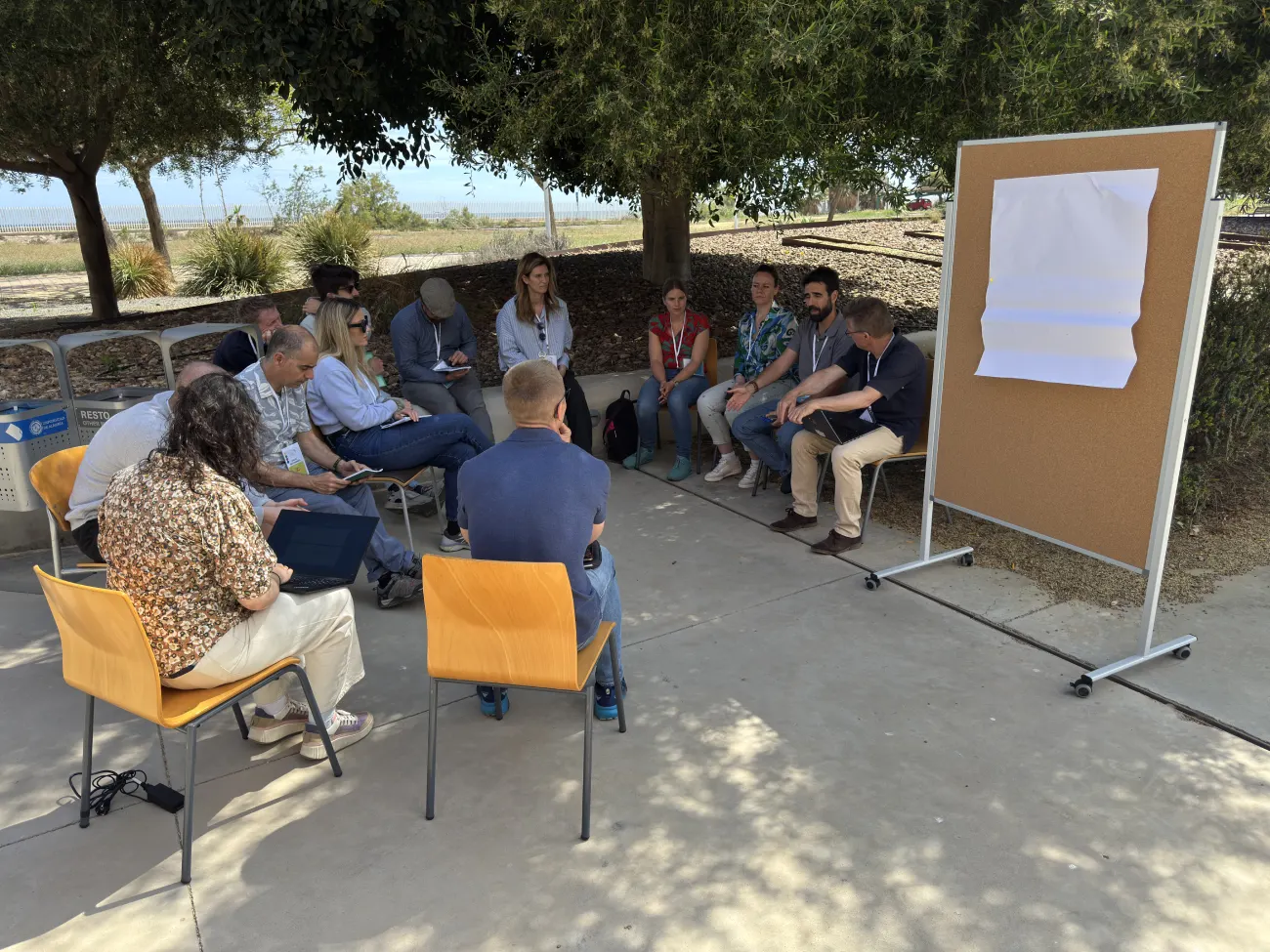
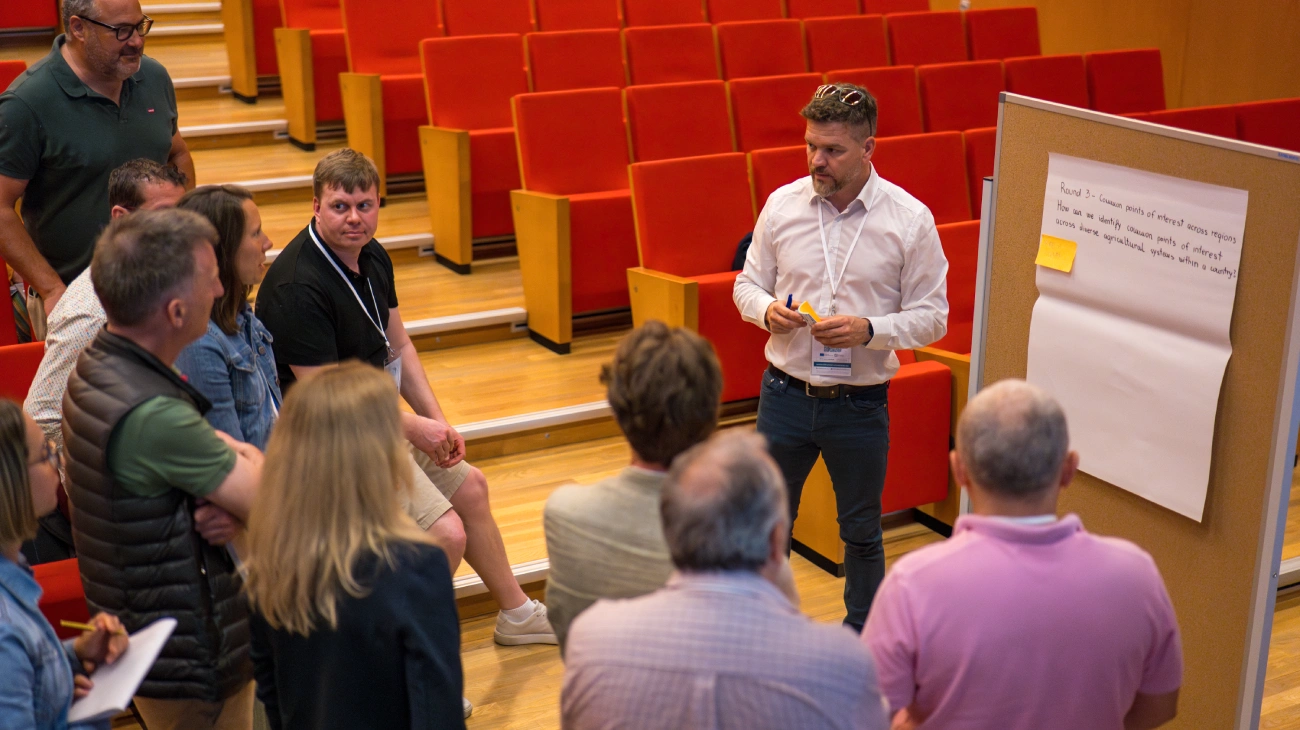
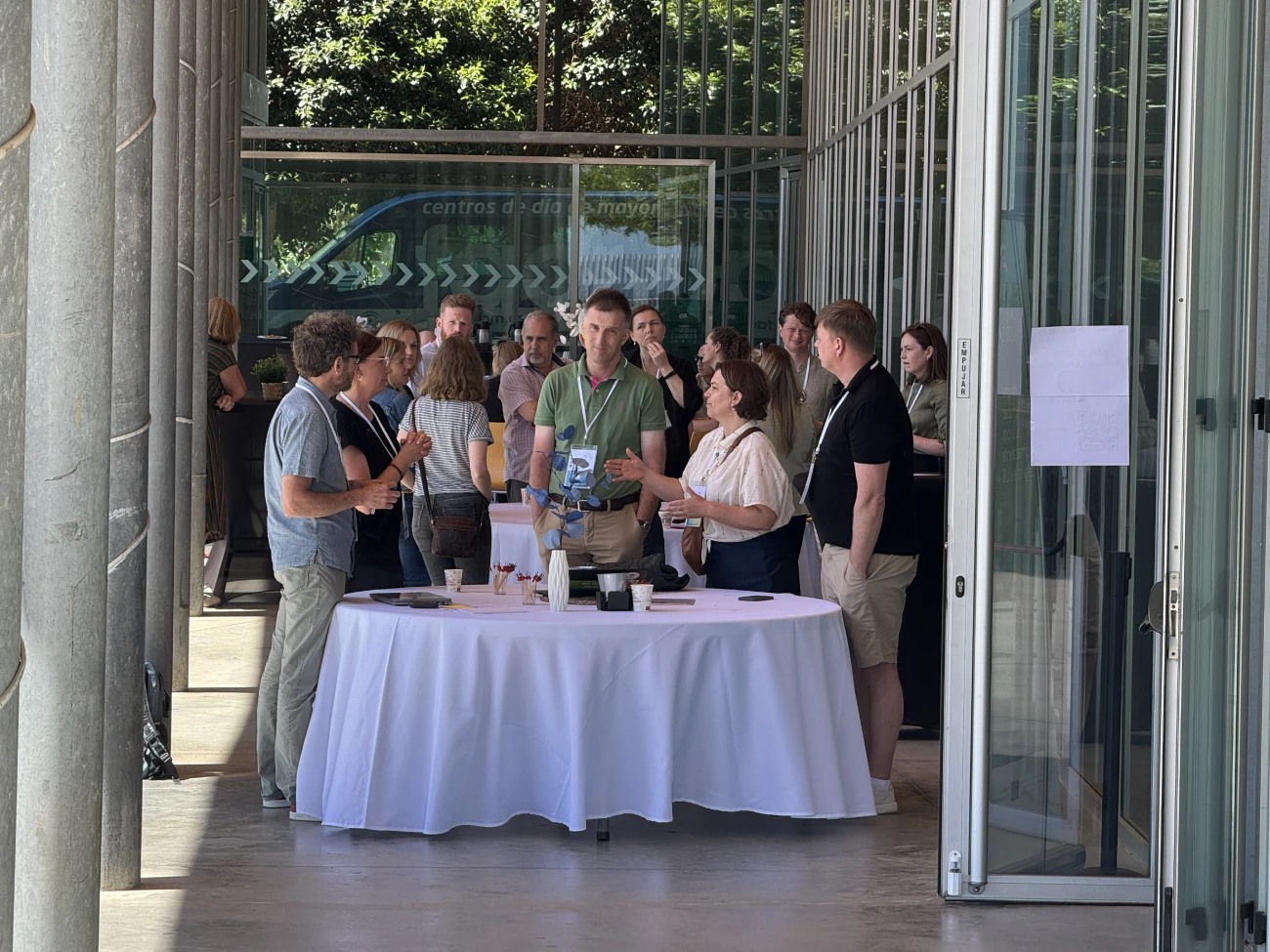
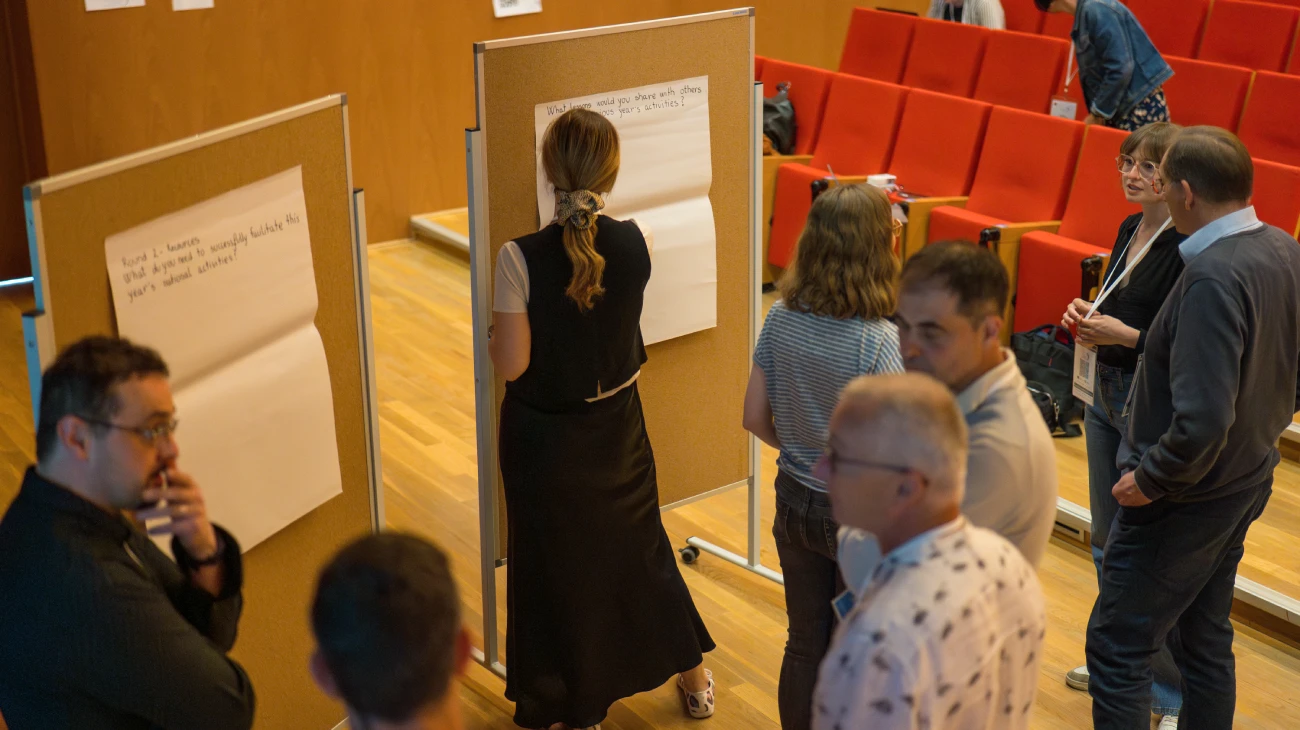
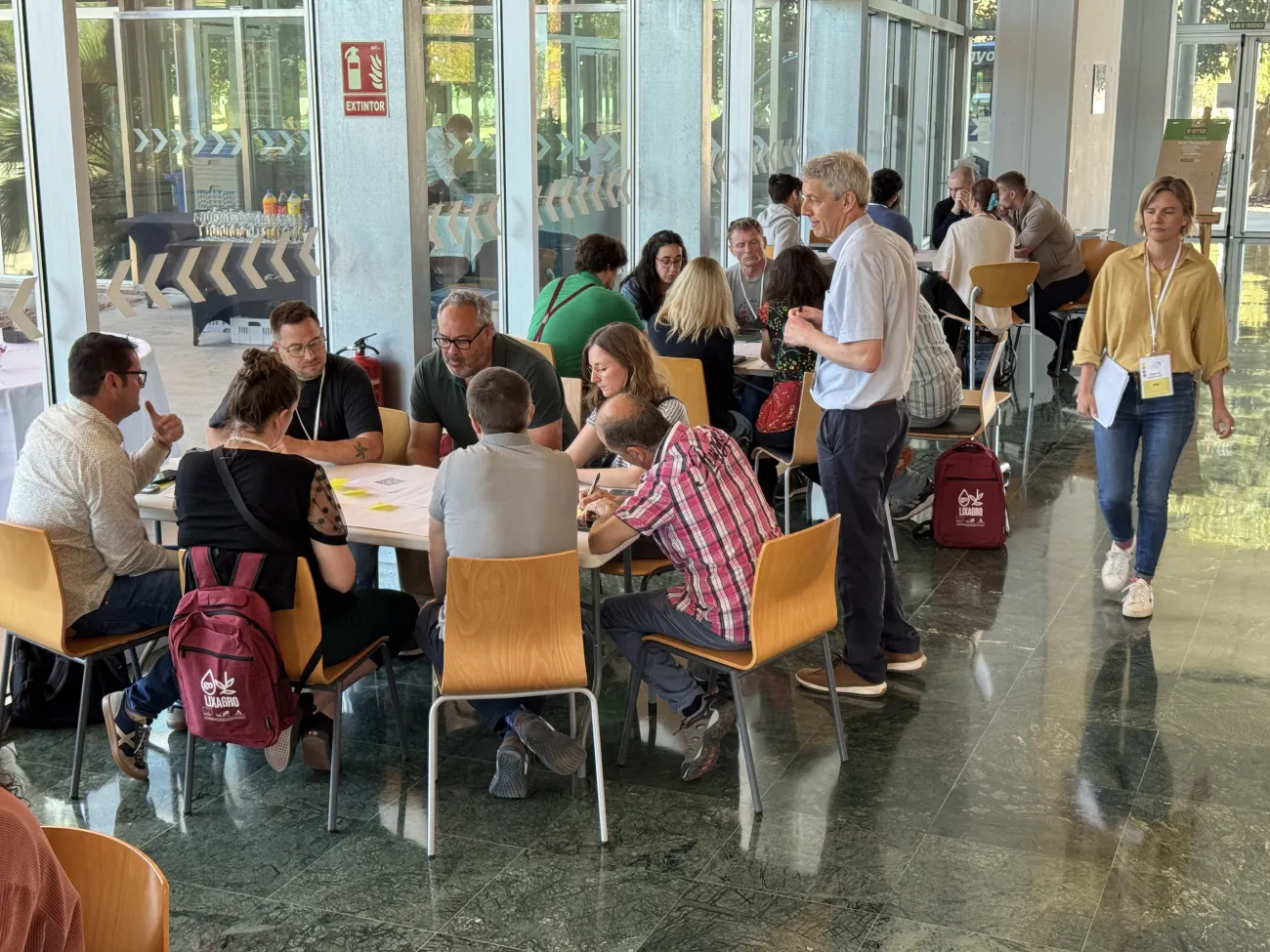
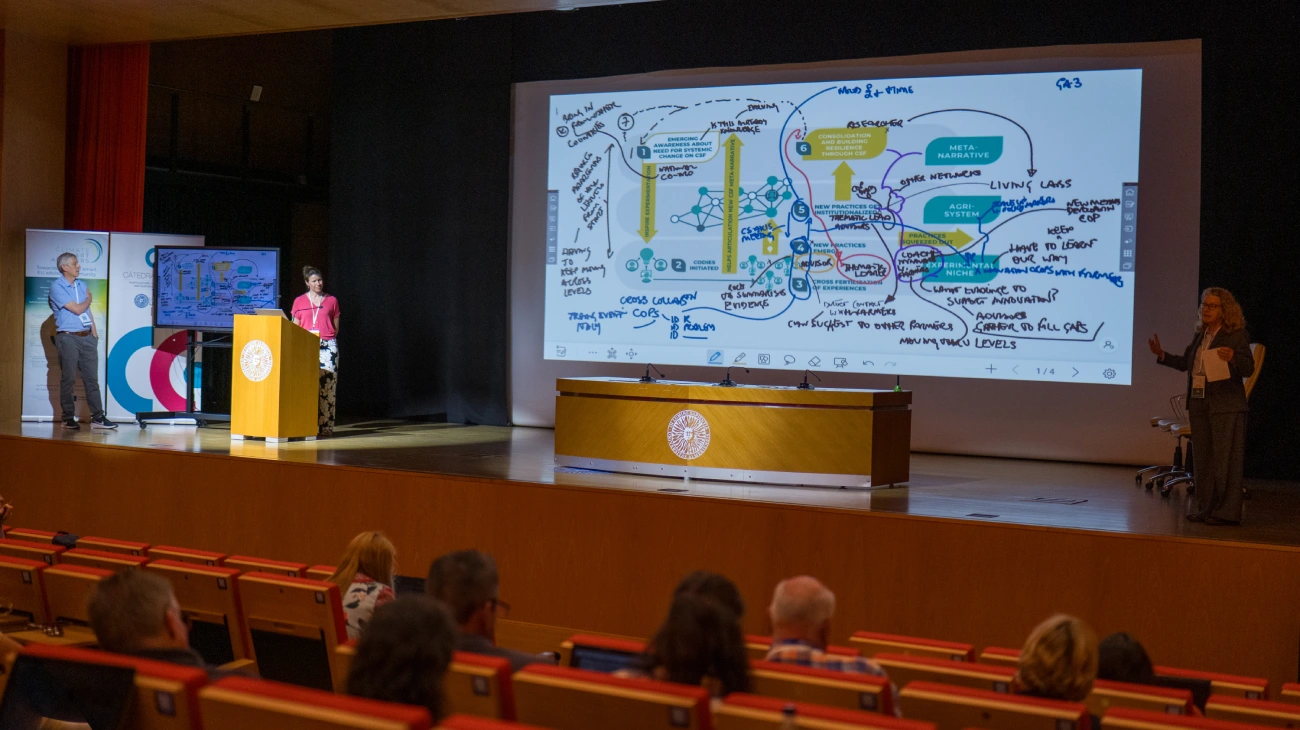
Day Two was dedicated to field-based learning and strategic planning. Participants split into three groups to visit local farms, each showcasing different climate-smart practices. Ecologicos Moga demonstrated integrated organic farming with greenhouse, livestock, and compost systems. LQA Thinking Organic showcased advanced greenhouse technology and post-harvest infrastructure, while Semilleros Laimund impressed visitors with sustainable ornamental plant production using innovative climate controls. These visits grounded the project’s concepts in real-life challenges and farmer-led solutions. “It’s one thing to discuss climate-smart strategies in a meeting room. It’s another to see how real farmers are applying, adapting, and improving them to face real challenges,” said one participant.
In the afternoon, participants reconvened for a plenary session titled “Mapping Our Roles in the Transition to Climate-Smart Farming,” facilitated by Laure Triste, Cynthia Giagnocavo, and Kevin Collins. Through collective reflection, participants identified their unique positions within the project ecosystem and explored ways to strengthen coordination and collaboration across levels. “The real power of this session was seeing where we each stand and how interconnected our roles actually are,” noted one attendee.
A new round of interactive learning sessions followed, focusing on context-specific solutions. Majken Husted, Daniel Acs, Esteban Baeza, Paul Newell-Price, Michael Billensteiner, Jana Roels, Rocco Lioy, and Aleksandar Ivezić each led topic-based discussions, offering insight into regional needs and showcasing replicable practices in climate-smart farming. The diversity of topics—from arable systems and biocontrol to energy savings and carbon footprinting—reflected the project’s holistic, multi-actor approach.
The day concluded with a hands-on session titled “Exploitation in Practice,” led by Isidora Čolić and Dajana Vujaklija from BioSense Institute. Participants worked in mixed-role groups, some developing their Key Exploitable Results (KERs) and others testing how to pitch project outcomes using the Farming for Climate platform. Teams voted on creativity, clarity, and usefulness, reinforcing the point that, “Project results only make a difference if we know how to share them — and how to make them matter.”
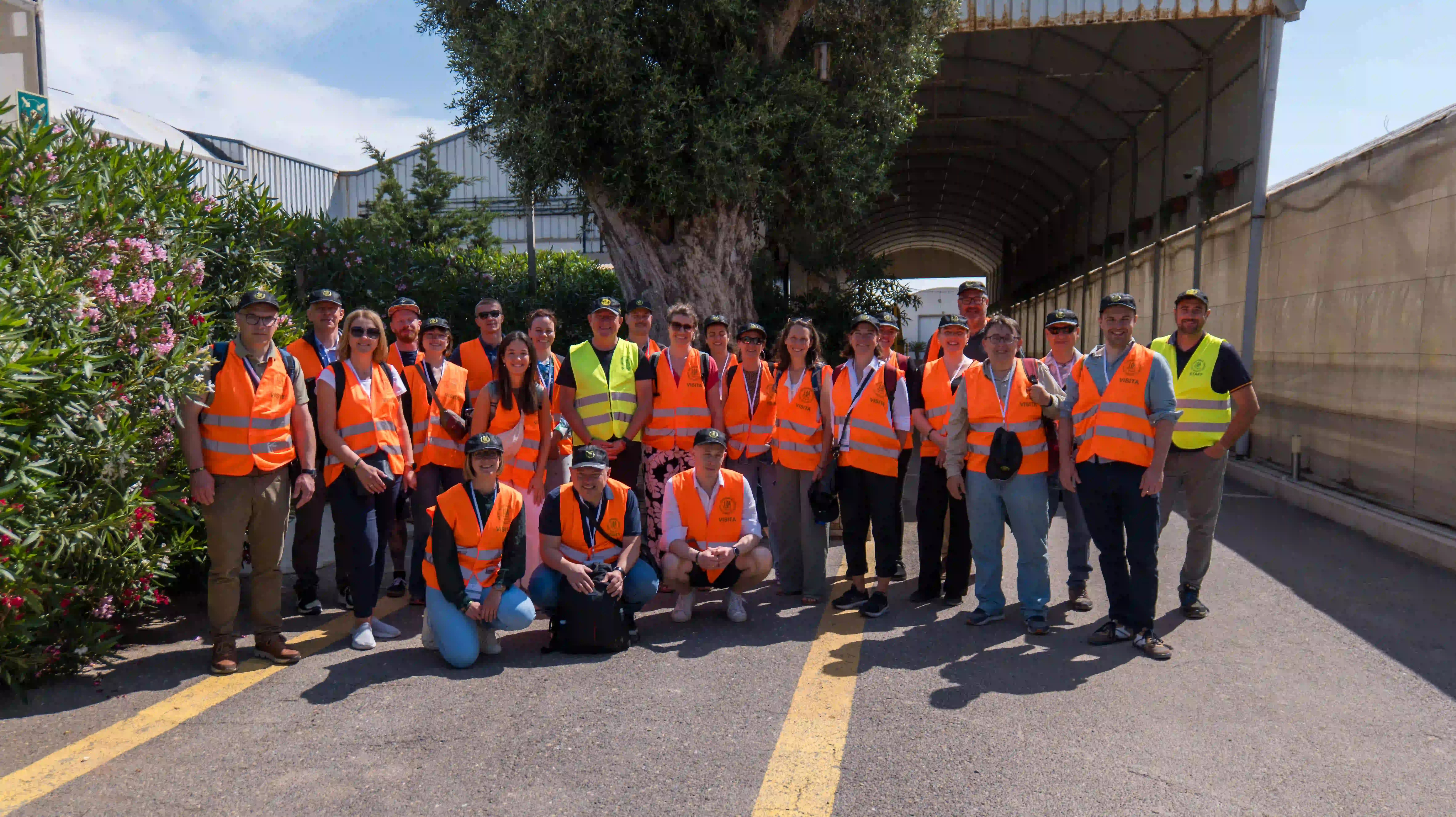
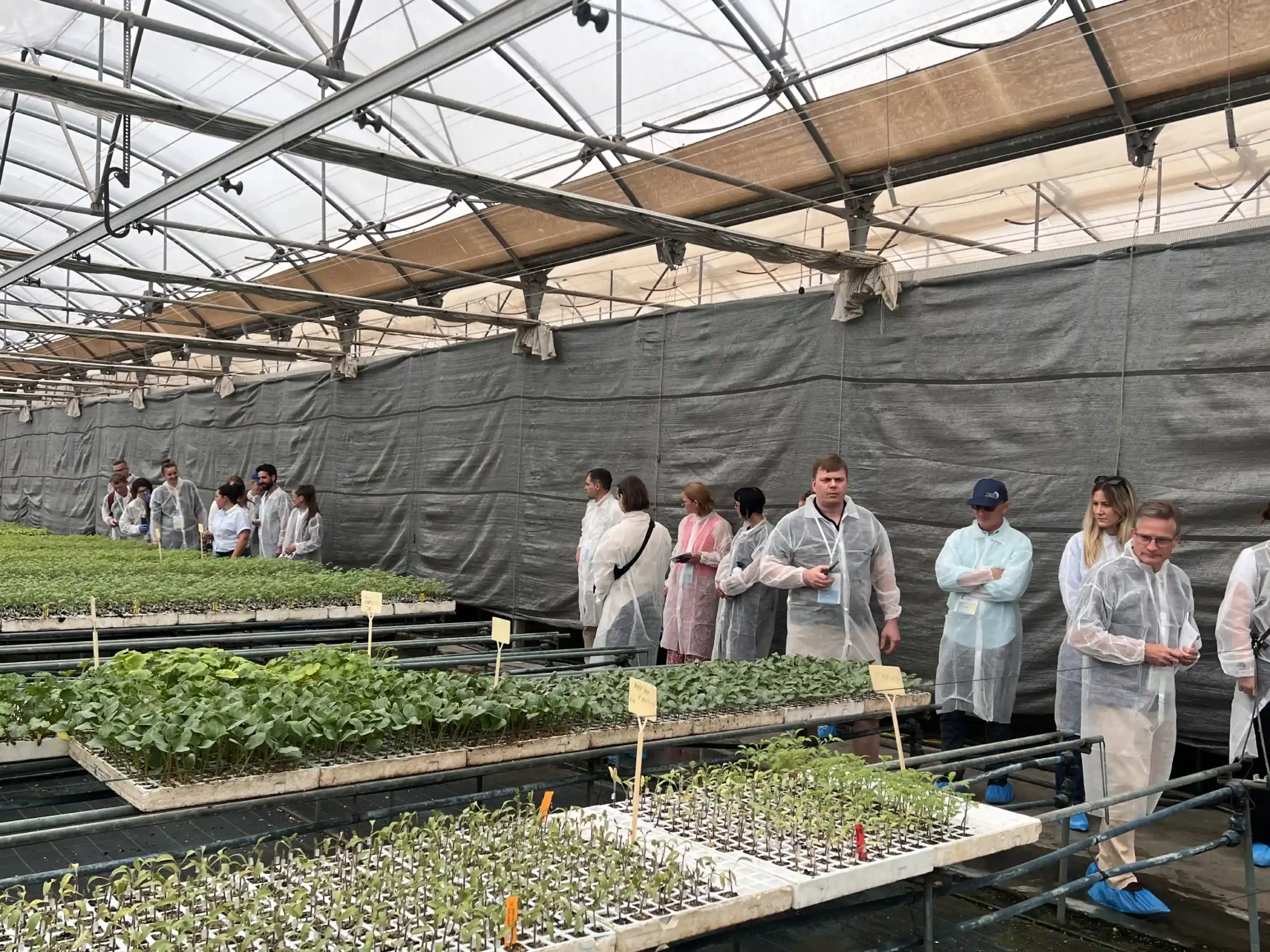
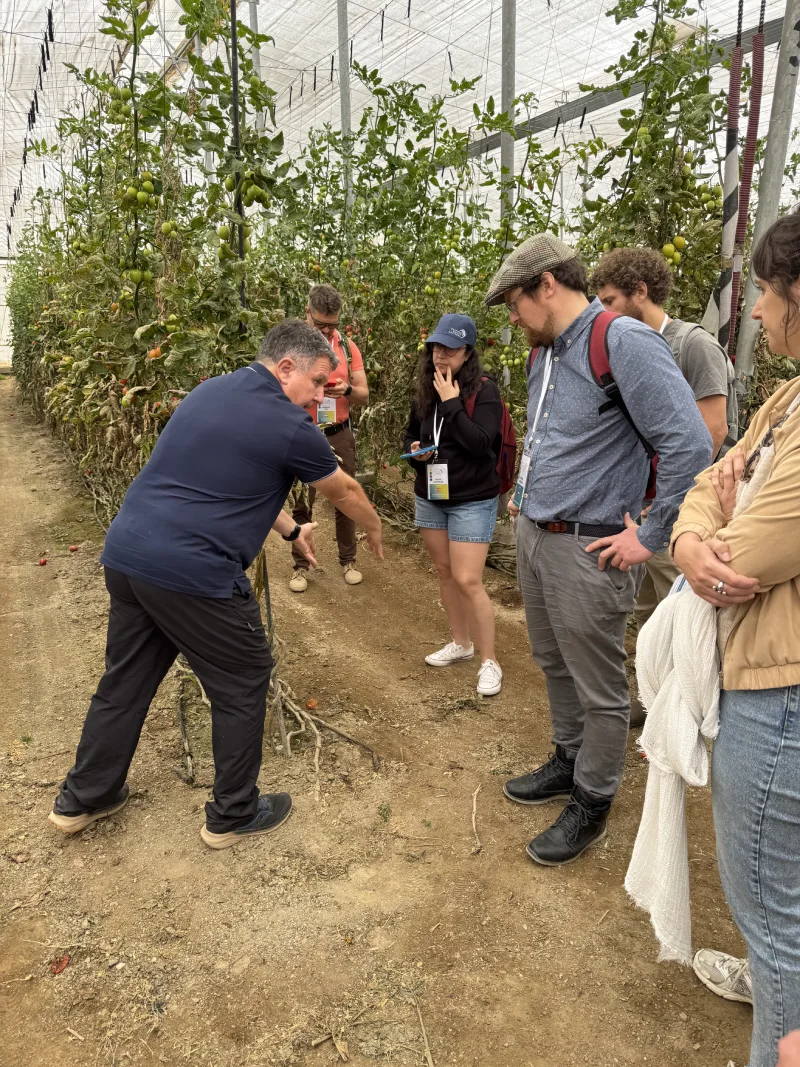
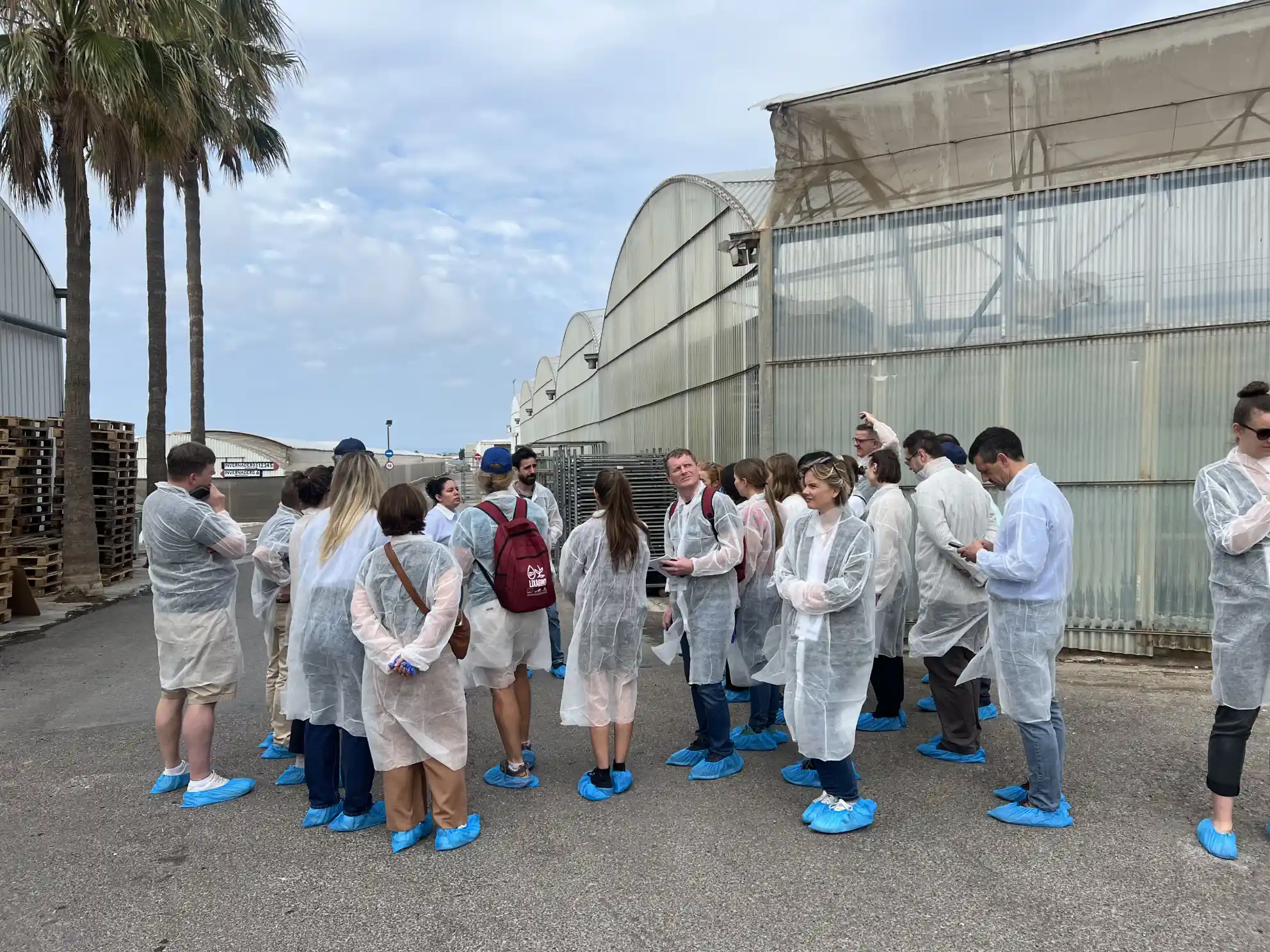
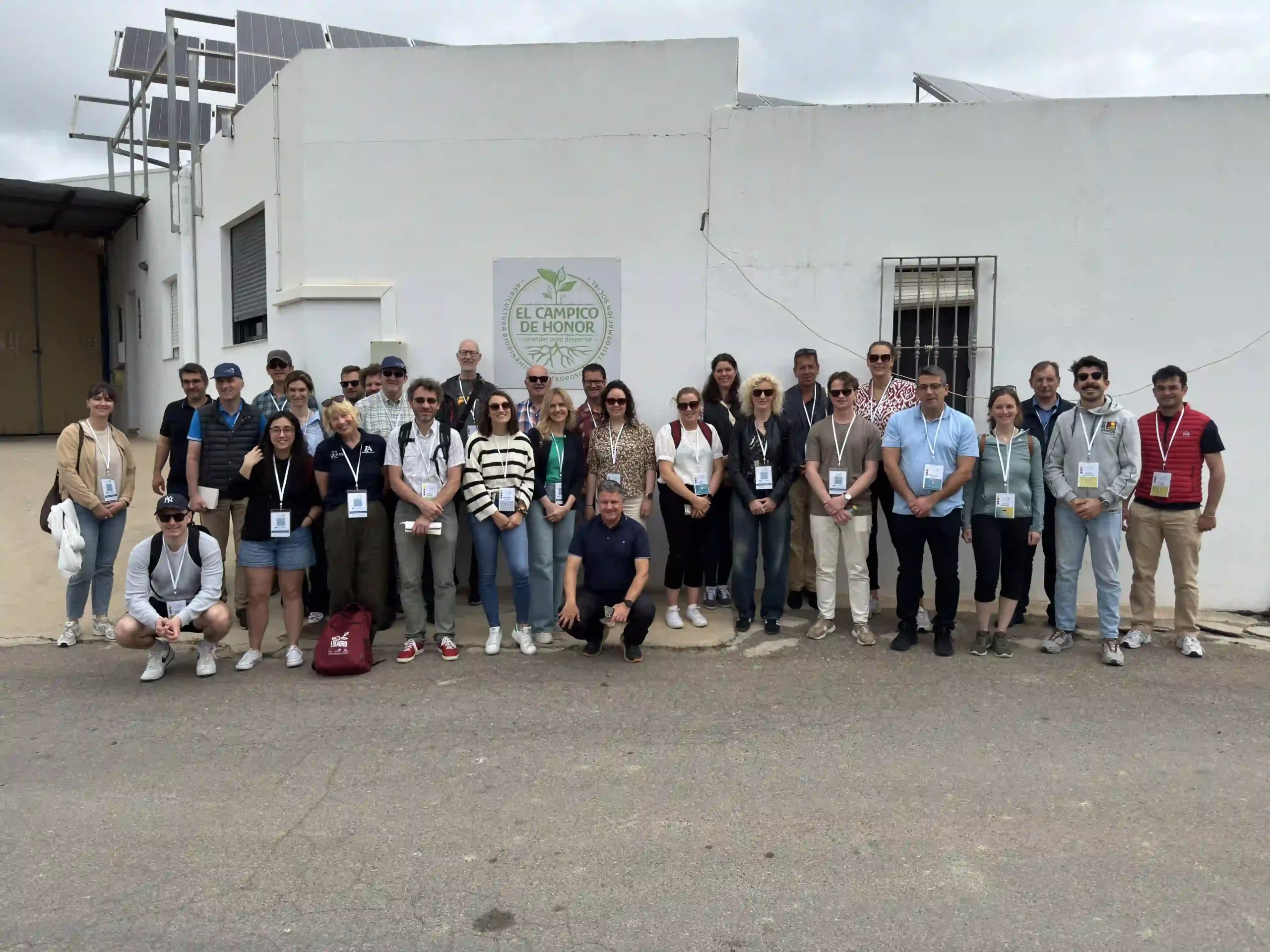
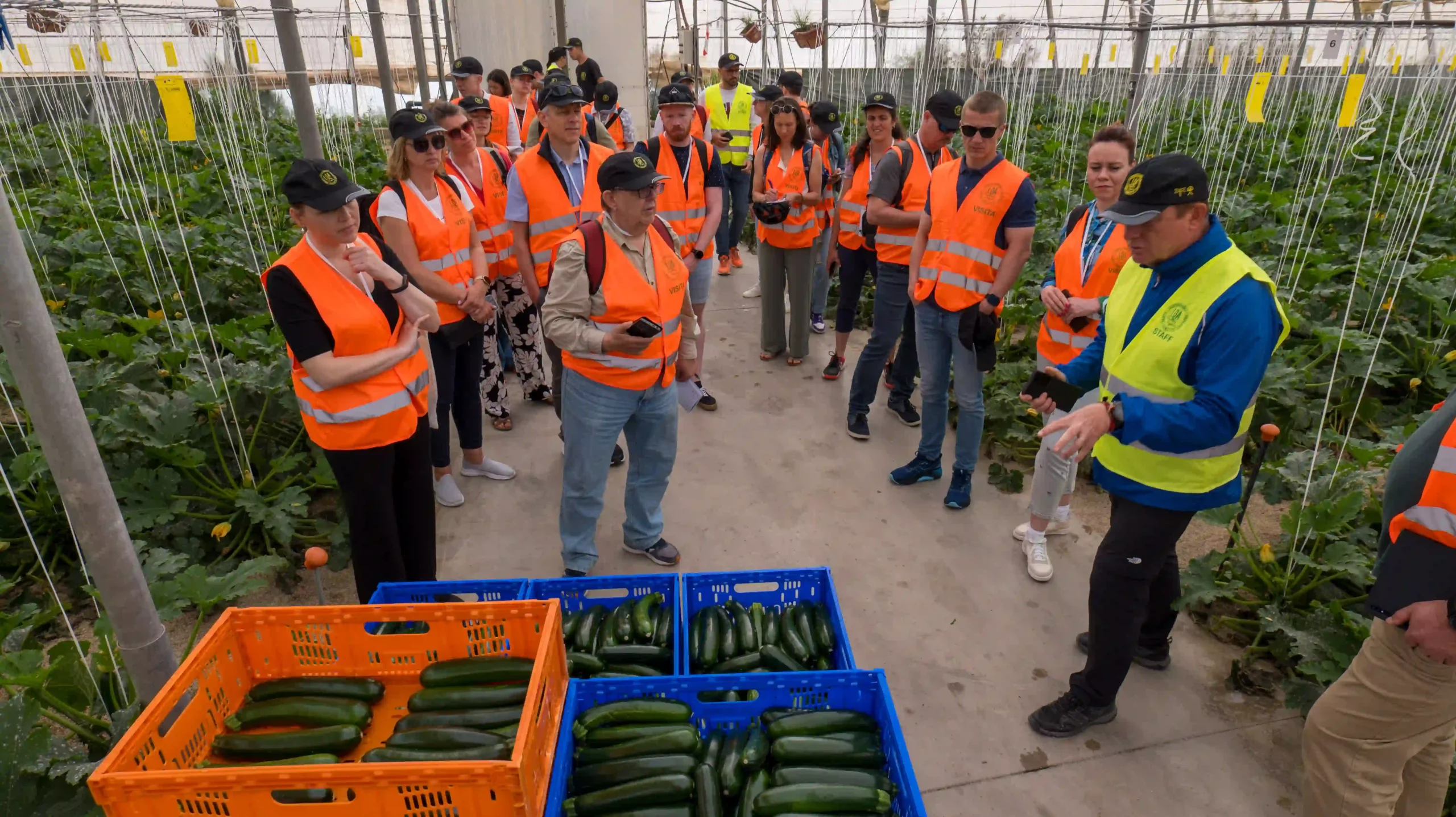
Day Three began with an internal coordination update led by Lies Debruyne and Jessica Girardi (LLKC), reviewing milestones and aligning upcoming work. This was followed by a forward-looking panel discussion titled “What Does the New EC Vision on Agriculture and Food Mean for Climate Smart Advisors?”
Moderated by Maria Mendonça (CONSULAI) and co-facilitated by Laure Triste, the panel featured insights from Saskia Keesstra (Climate-KIC), Carl Larsen (GFRAS), Juan Antonio (Proyecta Advisors), and Lies Debruyne. The discussion examined how advisors can respond to changing policy frameworks, market forces, and on-the-ground challenges. “We need to transition from activity-based to evidence-based payments,” said Saskia Keesstra. “However, science is not yet ready, and the pressure from competing policy priorities complicates implementation.” Juan Antonio added that, “Farmers feel the push from retailers far more than from policy. Support tools exist, but both advisors and farmers need greater empowerment to understand and apply them.” Carl Larsen emphasized the global relevance of advisory systems, stating, “The public sector alone can’t do it. We need to build platforms, soft skills, and a new vision of farming that speaks to youth and the future.” Lies Debruyne concluded by underlining the project’s role in bridging visions and practice: “Sometimes the vision is far from the field, but ClimateSmartAdvisors offers tangible examples. Our role is to connect skilled advisors with stakeholders across the value chain.”
To wrap up the event, awards were presented for outstanding engagement during the Assembly. John Langley-Randall, Audrey Miserez, and Caroline Evrat Georgel were recognized for their understanding of the ClimateSmartAdvisors roles and responsibilities, social media contributions, and networking efforts, respectively. Sweet treats and symbolic gifts added a festive note to the close of an impactful three days.
The General Assembly in Almería marked a key moment for the ClimateSmartAdvisors project—one that aligned vision, strategy, and practice. Through hands-on learning, policy dialogue, peer exchange, and celebration, the network reaffirmed its collective commitment to advancing climate-smart farming across Europe. The energy and insights from Almería will fuel the project’s next steps, shaping local implementation, refining tools, and building a stronger advisory ecosystem equipped for the climate transition.
